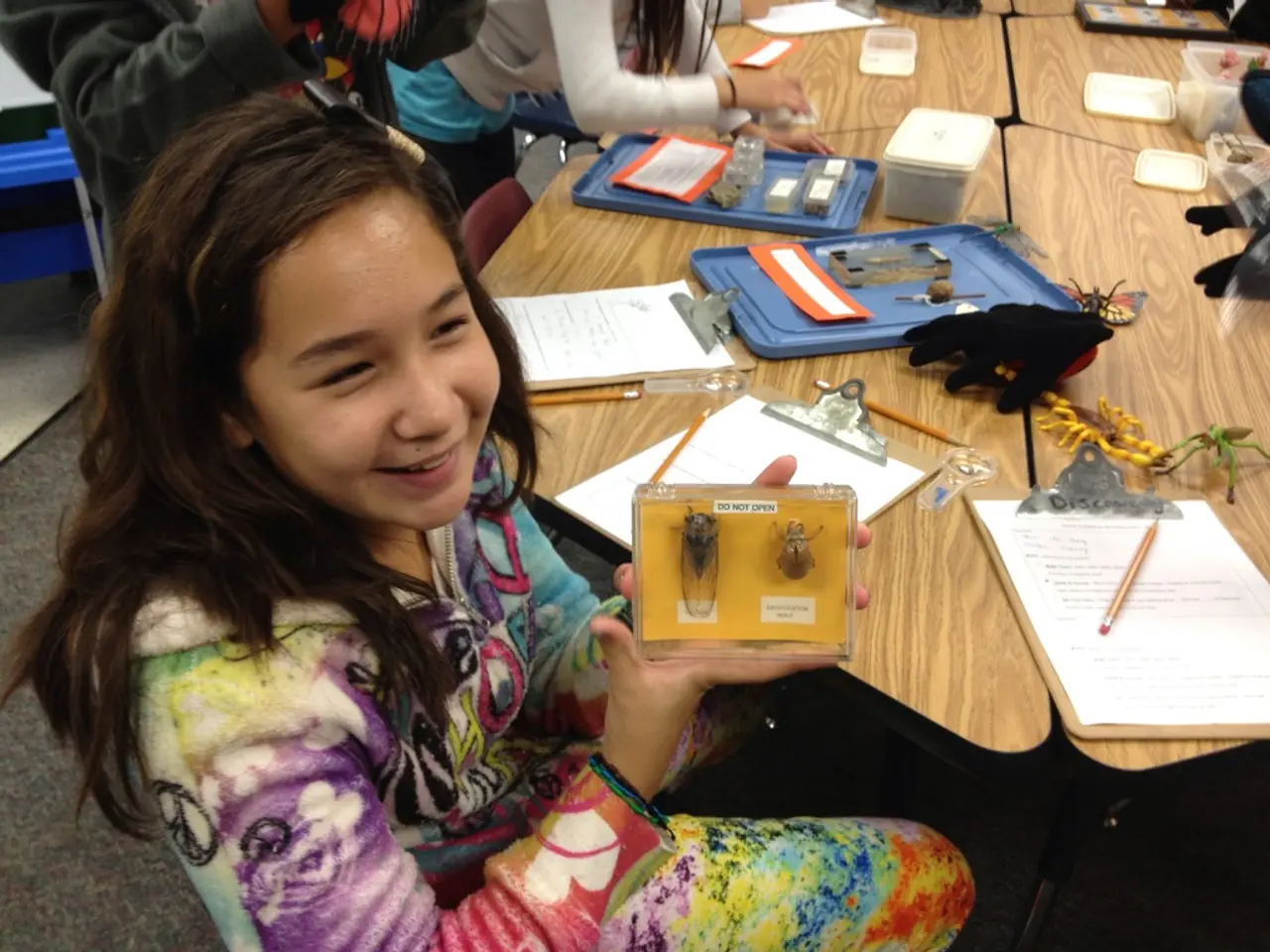Effect of Student Emotional Interactions on Self-Evaluation Decisions and Achievements in Sophisticated Educational Devices
MetaTutorIVH, an advanced learning technology designed for human biology education, is revolutionising the way students learn and evaluate their own performance. This intelligent tutoring system tracks students’ real-time emotional states during learning sessions, providing valuable insights into the dynamic interplay of emotions like confusion, frustration, and joy.
Research on MetaTutorIVH reveals that these emotions significantly impact students' retrospective confidence judgments. Confusion and frustration typically arise when students encounter challenging or unclear material, signalling cognitive disequilibrium. This prompts increased monitoring and regulation efforts to resolve misunderstandings.
However, when students successfully overcome confusion and frustration, often marked by a transition to joy or satisfaction, they experience enhanced feelings of mastery and accomplishment. These emotional transitions directly influence retrospective confidence judgments—students’ beliefs about how well they understood or learned the material after completing a task. Positive emotional resolution (from confusion/frustration to joy) tends to increase confidence, while sustained confusion or frustration can lower confidence or lead to inaccurate self-assessments.
MetaTutorIVH uses the detection of these emotions to support adaptive interventions that encourage productive regulation strategies, helping students move from negative emotions to positive ones and thereby improving both learning outcomes and confidence calibration.
The analysis of student emotions within MetaTutorIVH is done using facial expression recognition technology. Interestingly, the occurrence of transitions from confusion to frustration was observed at a significantly high likelihood. This suggests that students often experience frustration after initial confusion, emphasising the importance of addressing these emotions to improve learning and confidence.
Despite the presence of affective states and transitions, no differences in performance were observed within MetaTutorIVH. This indicates that while emotions play a crucial role in shaping students' confidence, they do not necessarily impact their ability to perform tasks accurately.
In conclusion, the dynamic interplay and resolution of emotions during learning activities with MetaTutorIVH foster more accurate and higher retrospective confidence judgments in students studying human biology. By making their metacognitive and emotional experiences explicit and actionable, MetaTutorIVH is paving the way for a more effective and confidence-boosting learning environment.
These findings align with broader findings in AI-enhanced education research, which emphasise the important role of affective states in learning success and the potential of intelligent tutors to modulate these states to improve both learning and self-evaluation. However, exact empirical details specific to MetaTutorIVH remain limited in the publicly available literature.
Artificial-intelligence, through MetaTutorIVH, aids education-and-self-development by monitoring students' emotions during learning sessions. Emotions like confusion and frustration can occur when students encounter challenging material, but when students successfully overcome these feelings, often leading to joy or satisfaction, their retrospective confidence judgments are boosted.
During the analysis of student emotions within MetaTutorIVH, it was observed that frustration often follows confusion, underscoring the significance of addressing these emotions to foster effective learning environments. Simultaneously, the system's adaptive interventions help students improve both learning outcomes and confidence calibration, demonstrating the potential of AI in enhancing the teaching and learning process.




